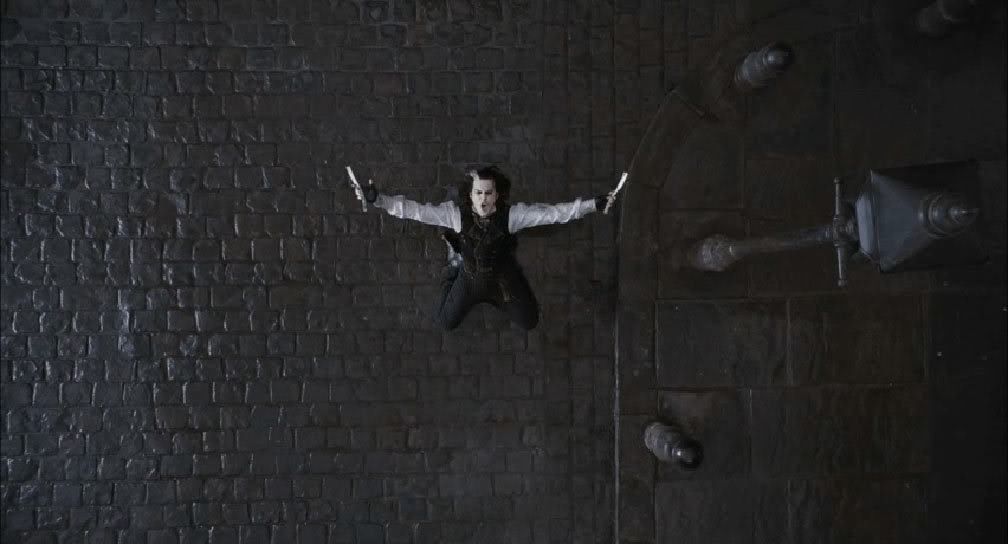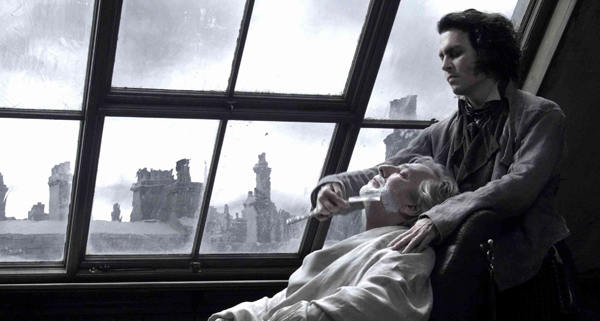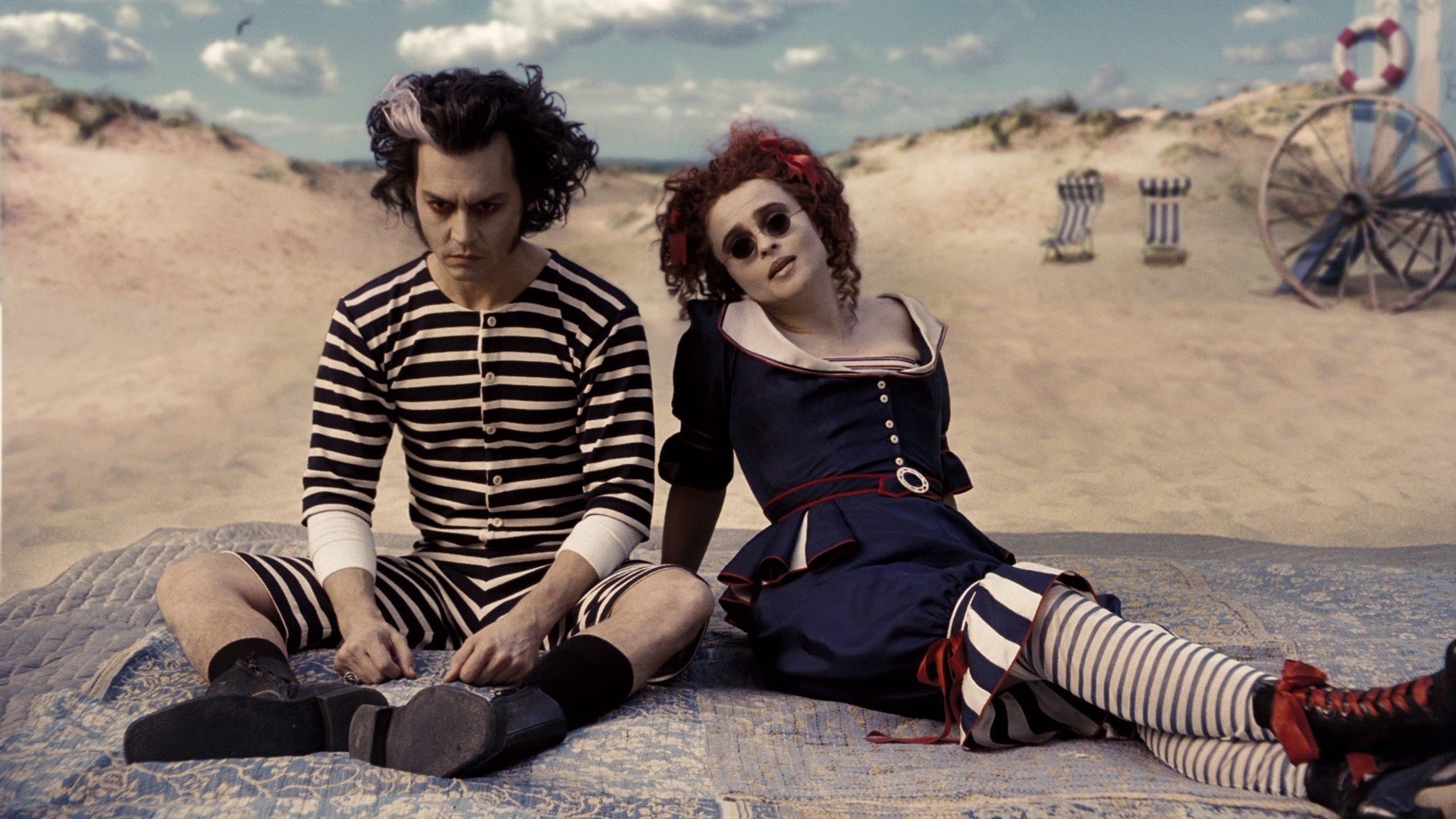Boo! It's "Oscar Horrors". Each evening we look back on a horror-connected nomination until Halloween. Here's our new contributor Jorge Molina...
(Before I dig in, I want to make a disclaimer that this is an article discussing “Sweeney Todd” and its lead performance as a stand-alone piece, and not in comparison to the original Broadway musical. Sorry, purists. Yes, I KNOW the sing-talking is off-putting…)
Sweeney Todd: The Demon Barber of Fleet Street (2007) is, in many ways, the perfect marriage between the talent behind it and its source material. Of the gothic tale of murder and revenge, and Tim Burton’s signature visual style. Of Sondheim’s characters, and the quirks which both Johnny Depp and Helena Bonham Carter built a career around. Of Sweeney Todd’s cold-blooded quest, and Depp’s cold-blooded performance, which earned him a Best Actor nomination.

For all the uninitiated out there (and if you are, please stop reading this and let Angela Lansbury lullaby you to sleep with "Not While I'm Around"), the story follows Benjamin Barker, a man who is taken away from his family by a corrupt judge and unjustly imprisoned for sixteen years. He comes back with a new persona as Sweeney Todd, a throat-cutting barber thirsty for revenge, who partners with pie-maker Mrs. Lovett to end those that wronged him.
So Sweeney Todd is, quite literally, a character. A fake man that, stripped of his former identity, exists solely for the purpose of vengeance, with no other discernable motivation. And no modern actor is better at playing characters than Johnny Depp.
By the time Sweeney Todd was released, Depp had famously made a name for himself by playing weirdos, especially when collaborating with Burton (this was their sixth film together). No one played pale, socially awkward outcasts desperately trying to belong quite like him. But while most of his past performances (Edward Scissorhands, Ed Wood, Willy Wonka) found heart within the quirk, what stands out from his portrayal of Sweeney is its heartlessness.
We never see Benjamin Barker, family man. We never see his before-and-after transformation. We just live with Sweeney Todd, the corpse of who he used to be, and with the single emotion that drives him: rage. He doesn't have a journey. Depp is not given an arc. Even when Todd finally gets his revenge, there’s no visible moment of satisfaction or redemption. As he (spoiler alert, but also basic prediction skills) bleeds out over his wife, we know he’s been dead all along.

In a straight drama, this may read as flat or monotone (which Depp verges towards dangerously at times), but here’s where the musical element of the movie comes to the character’s aid. The fact that Sweeney Todd breaks into Sondheim’s lyrical, agony-filled melodies elevates this emptiness to a disturbing level. It accentuates the heartlessness and vacuum that the character is in, never more obvious than during “Joanna,” where Todd sings about getting his daughter back as he mindlessly slashes throat after throat.
Even if Depp’s vocal abilities are very subpar (this is not Len Cariou or Michael Cerveris we’re dealing with), the sing-talking quality he gives to the numbers fits his interpretation of the character as a being wandering through the world half alive.
I do need to mention that playing against Depp’s inhumanity is Helena Bonham Carter, in what may be her strongest and most underrated performance (underrated because of how on brand it is). The chemistry she has with Depp jumps off the screen. Mrs. Lovett's pure devotion and ill-placed love enhances, contrasts, and bounces off Sweeney’s indifference. In another better world, she would have also been nominated.

Depp took all he’d been gathering in his career so far, and both embraced it and threw it out the window with this role. He discarded the small light of emotion that put the soul into his odd characters and was only left with the container. And somehow, he made that container work. He filled it with emptiness.
The Academy took notice. Maybe it was this reach outside of his comfort zone, or a due-nomination from his Burton years, or the fact that the Oscars love a musical. Depp lost to Daniel Day Lewis for There Will Be Blood in a battle that was never a battle. His next movie with Burton was Alice in Wonderland which, for all the wrong reasons, turned out to be a much emptier collaboration.